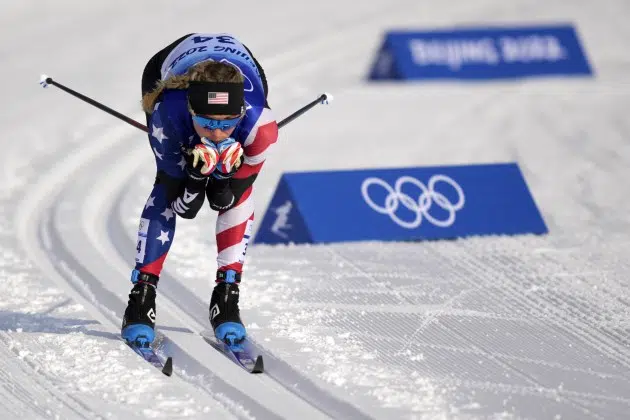MINNEAPOLIS (AP) — The long road of bringing the World Cup in cross country skiing back to the U.S. has hit one final speed bump: the Minnesota weather, or lack thereof.
With the Twin Cities metro area on pace for the least snowy winter on record, organizers have been on a determined and frantic mission to save the machine-made course at Theodore Wirth Park in Minneapolis for the sprint and 10-kilometer races scheduled for Feb. 17-18.
With 10 nerve-wracking days to go, about 40 volunteers skied along the path to carefully lay down blankets on Wednesday in order to protect the course from forecasted rain on Thursday. The high temperature in Minneapolis on Wednesday was 51 degrees — nearly double the average.
“At this moment, it does not look ideal,” said Claire Wilson, executive director of the Loppet Foundation that is staging the first U.S. stop on the World Cup tour since 2001.
The International Ski Federation (FIS) gave formal go-ahead last week after assessing the course conditions, a sigh of relief for all involved.
With weekend high temperatures expected in the low 30s, far more normal for this time of year, the snow-making machines are queued up for the next round of fresh powder. During an extended stretch of below-freezing weather in mid-January, crews stashed away as much as they could, and reinforcements — 28 truckloads in all — were harvested and hauled in from a nearby ski jump, Wilson said.
“We’re all crossing our fingers and toes,” she said.
World Cup skiers are accustomed to racing in less-than-ideal conditions, as a warming planet has contributed to a shrinking snowpack in cross country skiing hotbeds where natural snow has long been a fixture of winter.
The World Cup was originally slated to come to Minneapolis in 2020, before that event was nixed by the pandemic. Those races were supposed to take place in mid-March. When Wilson took the job after that, she pushed to put the rescheduled tour stop earlier on the calendar. The 2022-23 winter, of course, was the third-snowiest on record for the Twin Cities.
“It’s hard to fathom where we were last February,” Wilson said. “We’re worried about the event, but we’re also using the event and always have used it as an opportunity to talk about sustainability and to shine a light on protecting our winters, because this is the case now: They’re not reliable.”
Minnesota native Jessie Diggins, who played a significant role in bringing the World Cup to her home state, has worked with the advocacy group Protect Our Winters on the issue of climate change.
“Yes, this is a problem, yes, it’s manmade, and yes, we have to fix it,” Diggins said.
___
All contents © copyright 2024 Associated Press. All rights reserved.
Latest News







